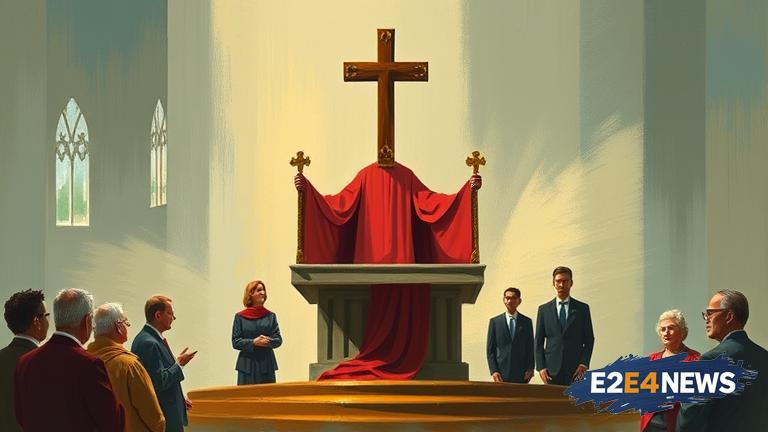A new survey has shed light on the changing landscape of Christian doctrine, particularly among mainline pastors. The study found that a significant number of mainline pastors are deviating from traditional Christian teachings, embracing more progressive and liberal views instead. This shift in doctrine has sparked intense debate and concern among Christian leaders, who fear that the erosion of historic Christian doctrine may have far-reaching consequences for the faith. The survey, which polled over 1,000 mainline pastors, revealed that many are reevaluating their stance on key issues such as the authority of Scripture, the nature of God, and the role of Jesus Christ. While some argue that this shift is a natural response to changing societal values and cultural norms, others see it as a threat to the very foundations of Christianity. The study’s findings suggest that mainline pastors are increasingly likely to reject traditional Christian teachings on issues such as same-sex marriage, abortion, and the exclusivity of salvation through Christ. Instead, many are embracing a more inclusive and pluralistic approach to faith, which emphasizes social justice and personal experience over doctrine and tradition. This trend has significant implications for the future of Christianity, as it raises questions about the nature of faith, the role of the church, and the relationship between Christianity and culture. Some Christian leaders have expressed concern that the abandonment of historic Christian doctrine may lead to a watering down of the faith, making it less distinctive and less relevant in a postmodern world. Others argue that this shift is a necessary response to the changing needs and values of contemporary society, and that it may ultimately lead to a more vibrant and inclusive form of Christianity. The study’s findings have sparked a lively debate about the future of Christianity, with some calling for a return to traditional doctrine and others advocating for a more progressive and adaptive approach to faith. As the Christian community continues to grapple with these issues, it remains to be seen how the shift in doctrine among mainline pastors will ultimately impact the faith. One thing is certain, however: the changing landscape of Christian doctrine will have significant implications for the future of Christianity, and will require careful consideration and discernment from Christian leaders and scholars. The survey’s findings also highlight the need for ongoing dialogue and debate about the nature of faith, the role of doctrine, and the relationship between Christianity and culture. Ultimately, the future of Christianity will depend on the ability of Christian leaders to navigate these complex issues, and to find a way forward that is both faithful to tradition and responsive to the needs of a changing world. The study’s findings serve as a reminder that Christianity is a dynamic and evolving faith, and that its doctrine and teachings must be continually reexamined and reinterpreted in light of new knowledge, new experiences, and new challenges. As Christian leaders and scholars continue to explore the implications of this shift, they must also be mindful of the need to preserve the integrity and distinctiveness of the Christian faith, while also being open to new insights and perspectives that may emerge from the conversation.
